Turkic think tanks tackle global instability Turning ideas into policy
A conference of think tanks from the member states of the Organisation of Turkic States (OTS) concluded in Baku, under the agenda: “Organisation of Turkic States as a Regional Actor During Global Uncertainty .”
One of the panels focused on the contribution of the OTS to global peace and stability amid political uncertainty. During the summit, participants also paid special attention to the role of the organisation within the modern international system, while discussing the strategic challenges facing the world.
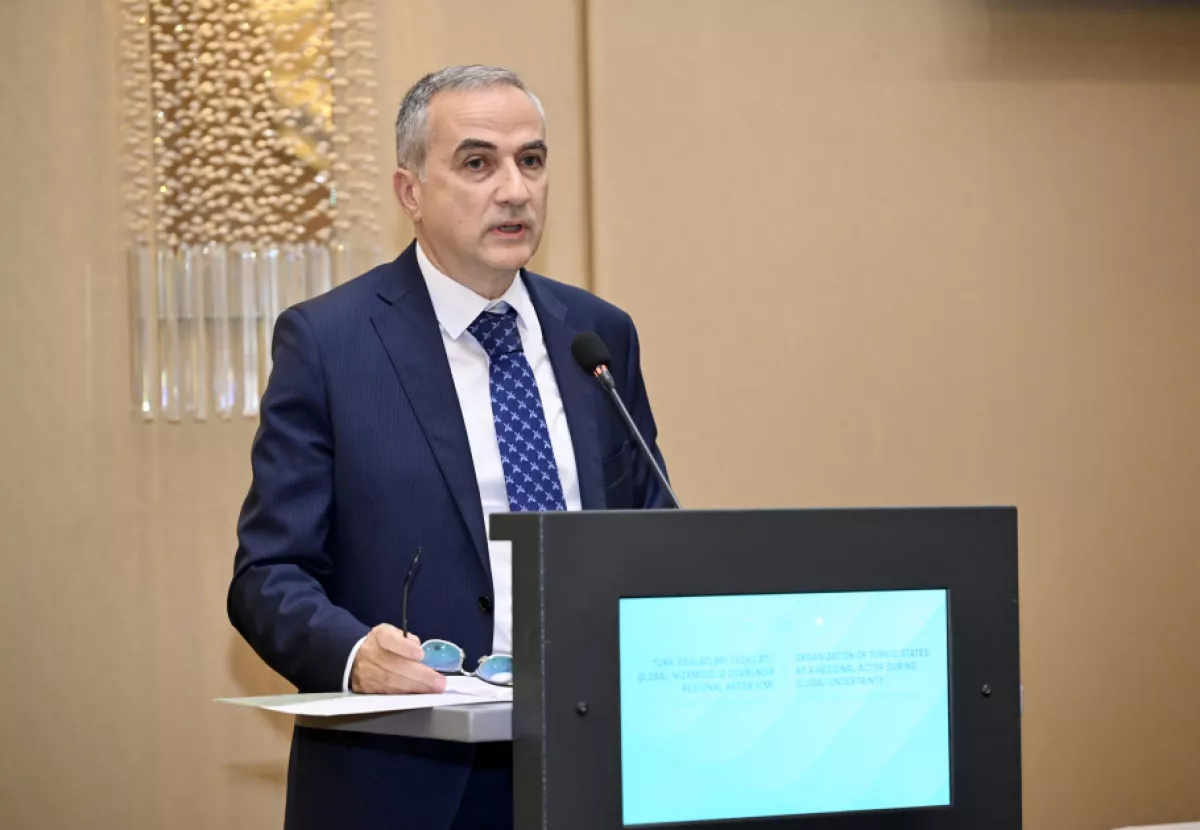
As noted by Farid Shafiyev, Chairman of the Board of the Centre for Analysis of International Relations, foreign powers interested in the region are forced to reckon not with individual states, but with a union of countries. However, according to him, the joint activities of the Turkic states cause concern among certain external actors seeking to undermine their unity. Therefore, only further strengthening of solidarity within the OTS will prevent such interested countries and structures from achieving their goals.
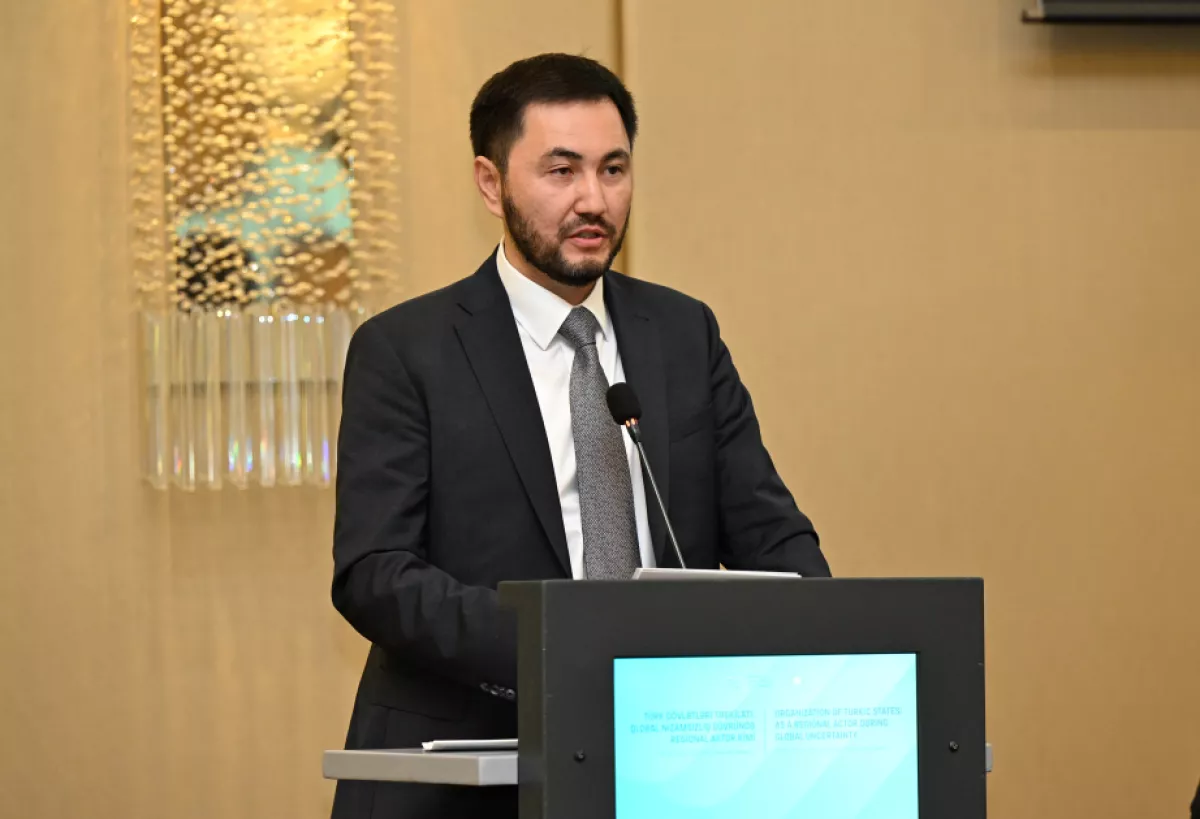
Zhandos Shaimardanov, Director of the Kazakh Institute for Strategic Studies, emphasised that strategic rivalries in the world lead to unpredictability in the global situation, particularly increasing hybrid threats such as cyberattacks, disinformation, and other forms of disruption. These developments directly affect the security, well-being, and cohesion of societies.
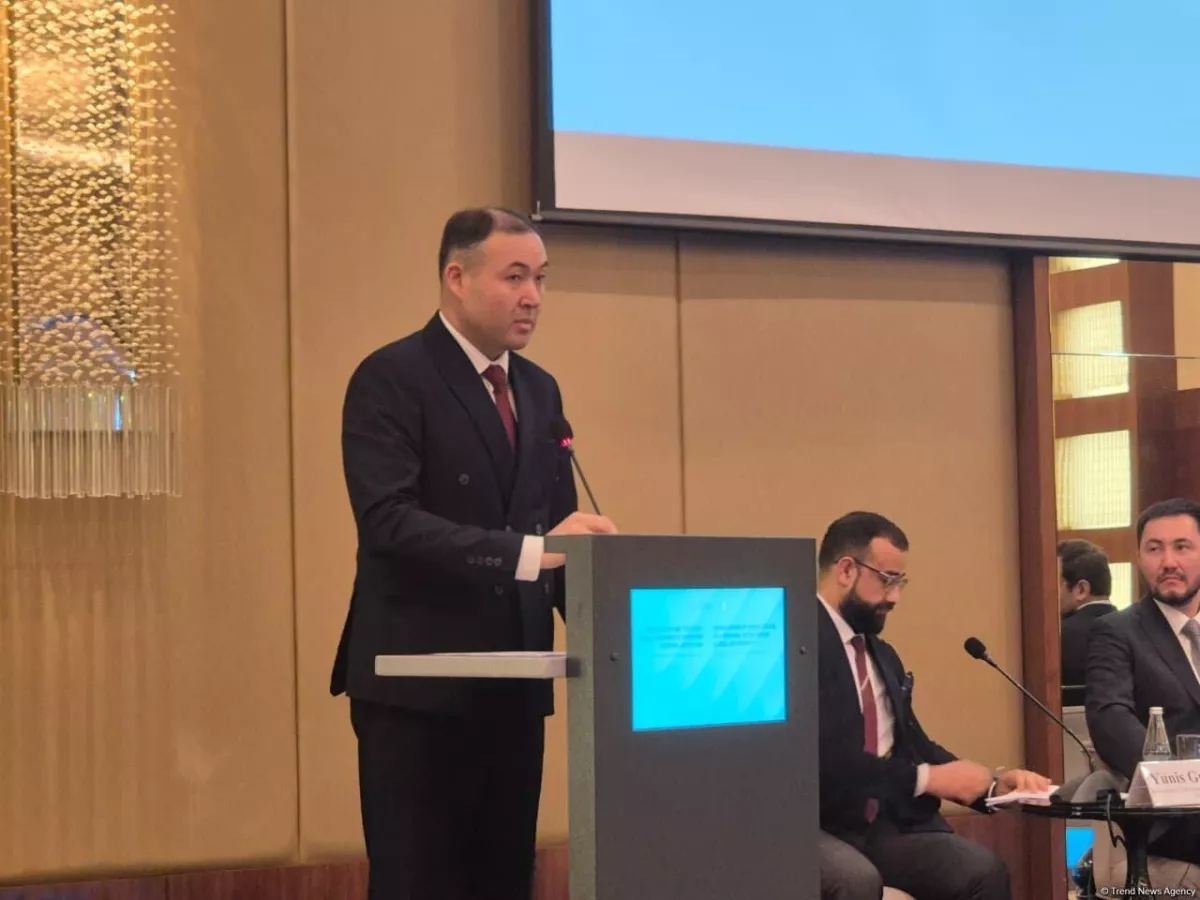
In the same vein spoke Adilbek uulu Shumkarbek, Deputy Director of the Kyrgyz Institute for Strategic Initiatives.
In recent years, the activity of think tanks has noticeably increased. For instance, in 2022, a conference of think tanks from OTS member and observer states held in Shusha discussed the topics “The Future of the Central Asia–South Caucasus Interregional Platform” and “New Geopolitical Realities in the Region and its impact on the OTS.” That same year, a Memorandum of Understanding was signed between the analytical centres of OTS countries.
At the recent meeting of official foreign policy research centres of the OTS in Astana, under the theme “Turkic States' Cooperation: Building Bridges in a Turbulent World,” participants conducted an analysis of contemporary international and regional security challenges.
In April 2025, leading think tanks from OTS countries examined the challenges facing the economies of the Turkic region amid global instability. It was noted that only through joint work by analytical structures can OTS states build integration based on knowledge, mutual interest, and concrete solutions. Key areas identified included strengthening transport connectivity, digitalising trade, transforming the energy sector, developing new financial instruments through the Turkic Investment Fund, and more.
Thus, the format of the current OTS think tanks summit builds on previously discussed topics while simultaneously identifying new trends in response to the evolving global environment. A crucial feature is that all of this aligns with the ideas voiced by Azerbaijani President Ilham Aliyev, starting in 2024.
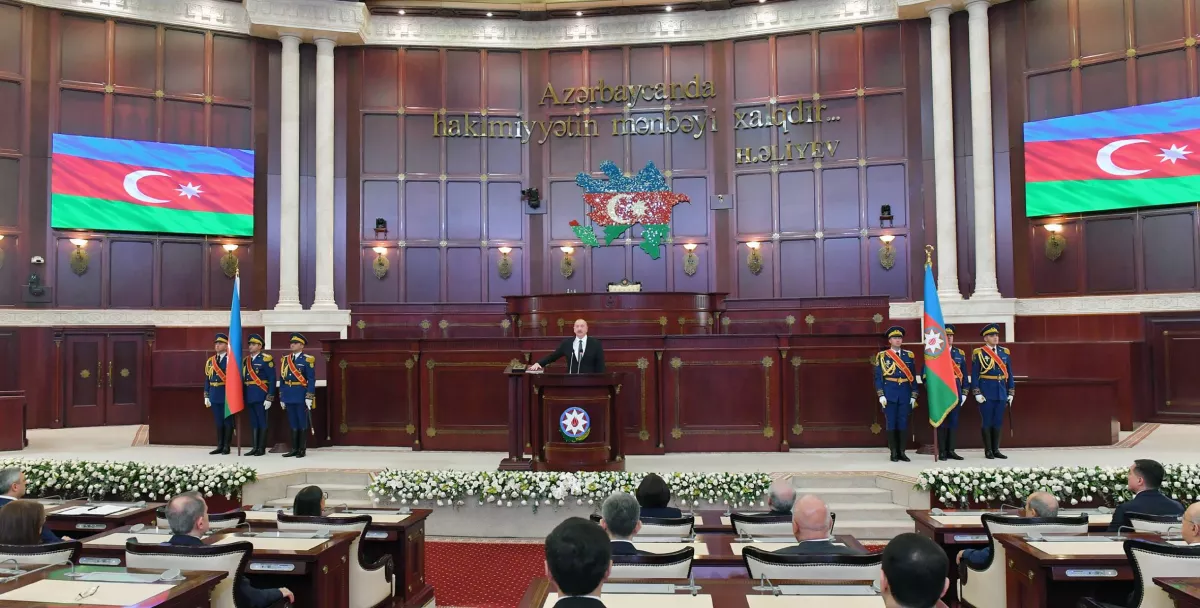
As early as February 2024, in his inaugural speech, the head of state described the OTS as a union with significant geography, territory, military power, economy, and infrastructure, including major transport corridors and a young population. He referred to OTS members and observers as peoples of one origin and shared roots. Posing a rhetorical question about the possibility of stronger unity, the president gave a clear answer: no. At the same time, he emphasised that the organisation’s participants must collectively work to transform the OTS into an important actor and a centre of power on the global stage.
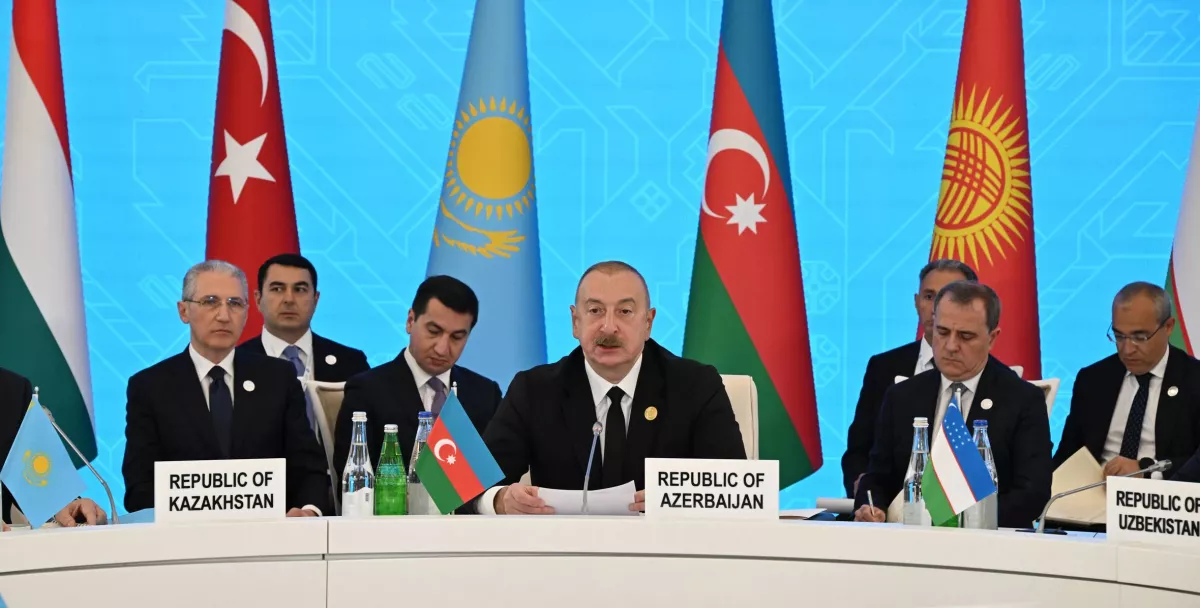
In the summer of the same year, in an address to participants of the international conference in Shusha, “Organization of Turkic States: towards new strategic goals in the context of geopolitical realities and global cataclysms,” President Ilham Aliyev noted that in the context of widespread violations of international law and the spread of selective approaches based on double standards, responding to modern challenges has become one of the main tasks for OTS countries. In this context, the head of state defined the OTS as a growing centre of power in global politics and expressed confidence that the 21st century will be the century of prosperity for the Turkic world.
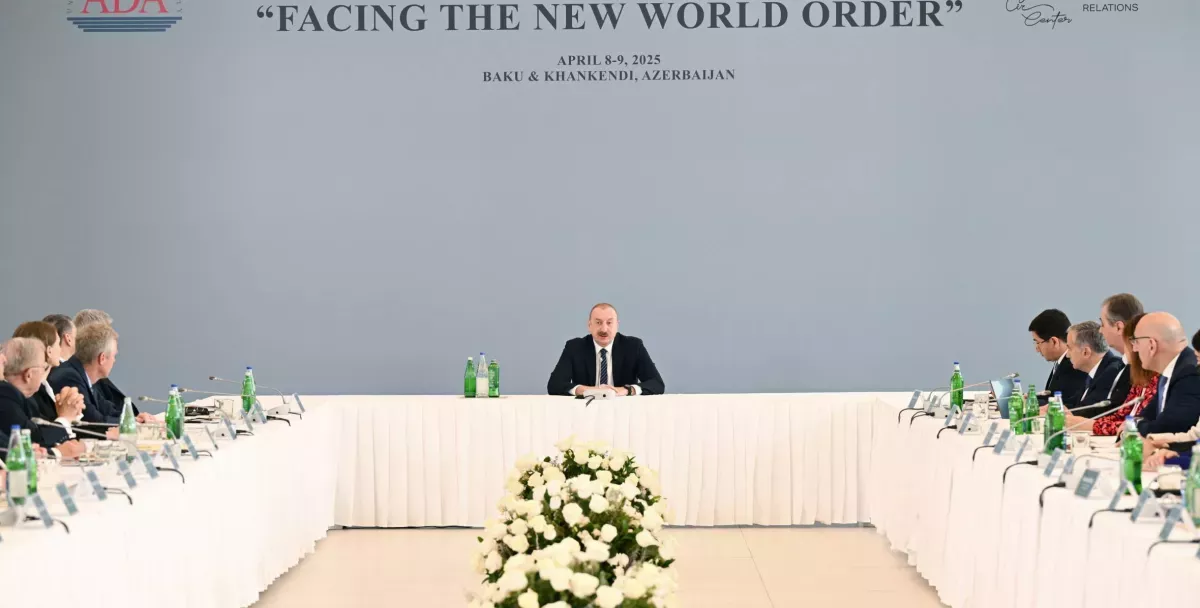
In the spring of 2025, President Aliyev drew a parallel: while EU countries adhere to different values, such divergence is not observed within the OTS, which makes the organisation unique. He then emphasised the need for consolidated international action that would transform the OTS, at a minimum, into a decision-making centre across the vast Eurasian space.
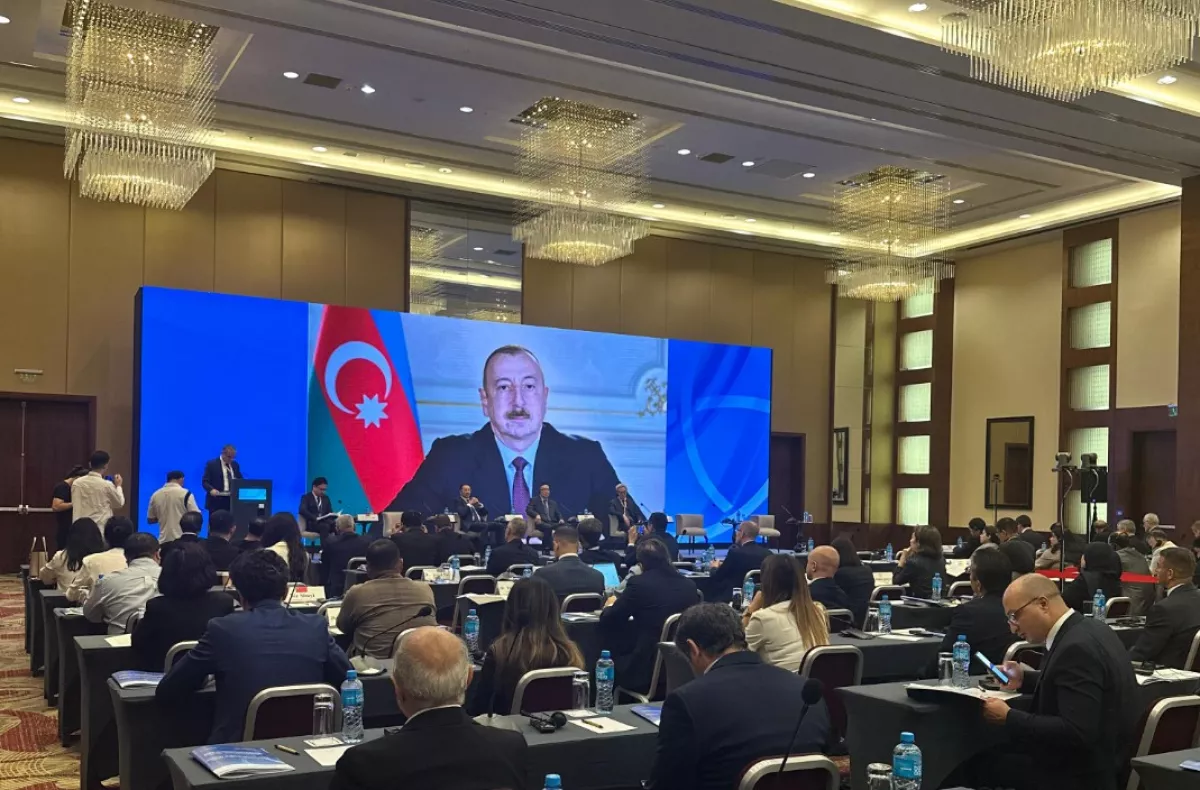
At the end of the first decade of the current month, in an address to participants of the 13th Meeting of the Think Tank Forum of the Conference on Interaction and Confidence-Building Measures in Asia (CICA), President Ilham Aliyev highlighted the role of analytical structures in the development of states and societies. He emphasised that the research conducted by think tanks across various fields provides a crucial foundation for addressing global challenges, including issues of security, the economy, technology, and the environment.
Thus, as can be seen from the above, the position (or conceptual framework) of OTS activities, articulated by the head of state, has become the basis for the organisation’s important decisions. The president clearly revealed the potential of think tanks to shape powerful contemporary trends. In this context, the recent conference of think tanks in Baku emerged as a natural outcome of following President Ilham Aliyev’s ideas.








